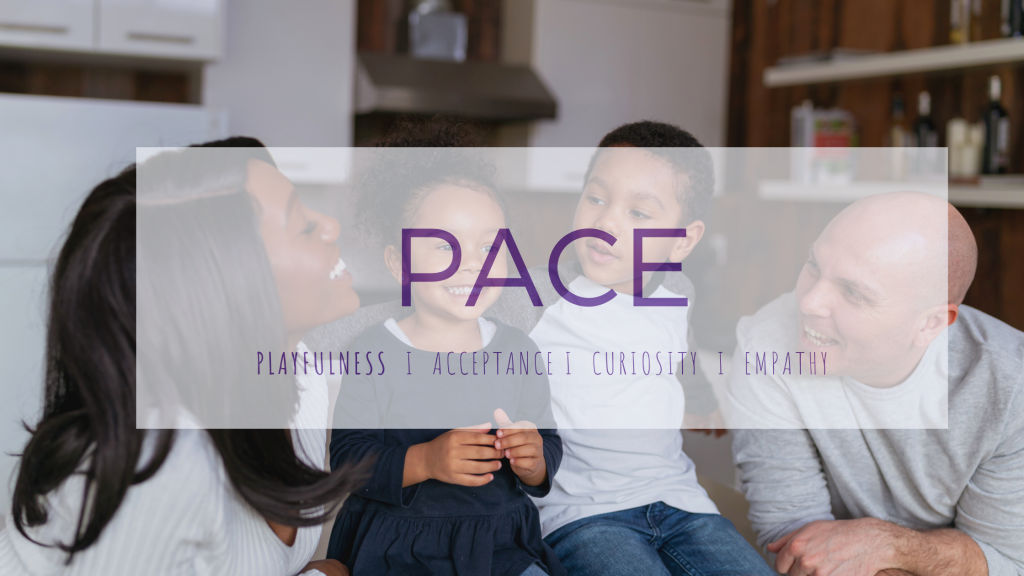
This is the first edition of Let’s Talk About Parenting and we are going to talk about the acronym PACE and specifically this time, playfulness.
PACE stands for:
P Is for PLAYFULNESS
A is for ACCEPTANCE
C is for CURIOSITY
E is for EMPATHY
This is all from Danial Hughes’ work in Attachment Focused Family Therapy and Dyadic Developmental Psychotherapy. Much of his work is based on research by Dan Siegel from Interpersonal Neurobiology (IPNB), Allan Shore, Colowyn Trevlythn, Diana Fosha and Sue Johnson. This was on the shoulders of Bowlby and Ainsworth’s development of attachment theory.
So, we want to talk about PACE as attitude. It is an attitude that Hughes recommends adopting as a parent. If a parent can’t bring this attitude to the family dynamic, then a therapist is needed to model it and teach this attitude and the process of using it. This is an attitude that requires five different brains systems to integrate their complex functions for adequate and good parenting. I’ll spend some time on those systems in a future article, because those are interesting too.
For now, just know that PACE is intended to be the attitude or spirit in which we engage with children as much as we can. You’re not going to be perfect with this and I’ve read research that suggests that if parents implement this attitude about 50-70% of the time, it’s good enough.
Playfulness, specifically, is a positive, deep interest and engagement with your child. The opposite of playfulness is defensiveness, or assuming that your child has done, or is going to do something stupid. If we are playful we are open to our child’s experience as well open to reflecting on our own. That enables parents and children to view their interactions and their relationship as hopeful even if there is conflict or misunderstanding. We don’t want to look at it like conflict or that we need to yell at each other and that the other person is being malicious. We look at it as an opportunity to find understanding, because we are missing that. That is a neutral way of looking at it rather than how frustrating the other person is. So, the purpose of talking to your child should never be to scare them into doing what they are “supposed” to do. It’s to provide a context of safety for them to explore their own experiences and learn how to problem solve and critical think for themselves.
Playfulness is keeping you and your child in the ventral vagal system, which in Polyvagal Theory is the social engagement system and the state that is associated with the nervous system being relaxed, calm – feelings of safety emerge and we are able to be in our right brain more and more in the moment. And when we are more in the moment, we are better able to problem solve, be creative, and be flexible in our thinking (kids and adults). We have to be open and playful so that they will be playful with us as their way of experiencing the world. If we become upset, the child’s nervous system will also become distressed. They can only learn how to calm their nervous system by learning from watching you do it right in front of them.
So that’s playfulness, next time we will talk about acceptance.
